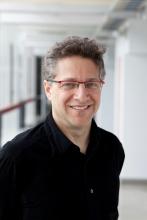Presenter:
Peter Galison, Joseph Pellegrino University Professor, Director, Collection of Historical Scientific Instruments, Ph.D., Harvard University
Peter Galison is the Joseph Pellegrino University Professor at Harvard University, where he holds a joint appointment in the history of science and physics. In 1997, he was named a John D. and Catherine T. MacArthur Foundation Fellow. Galison’s main work explores the complex interaction between the three principal subcultures of twentieth century physics--experimentation, instrumentation, and theory. In addition to his books How Experiments End, Image and Logic, and Einstein's Clocks, Poincaré's Maps, he has launched several projects examining cross-currents between science, technology, and other fields. His book (with Lorraine Daston), Objectivity, asks how visual representation shaped the concept of scientific objectivity. Other work on science/technology/art cross-currents includes his co-edited volumes The Architecture of Science, Picturing Science, Producing Art, and Einstein for the 21st Century: His Legacy in Science, Art, and Modern Culture. He is the co-director of two documentaries, Ultimate Weapon (about the making of the H-bomb) and Secrecy (about the tension between secrecy and knowledge), while currently at work on a third, Nuclear Underground; he is collaborating with the artist William Kentridge on an international exhibition called “The Refusal of Time” about the boundaries of art and science; and he is finishing his next book, Building Crashing Thinking, about how technologies reform ideas of the self.
-----------------------------------------------------------------------------------------------
His Landis Lecture, “Wastelands and Wilderness,” will address the ways one of modernity’s most significant technologies, nuclear power, requires us to grapple with the demands of managing radionuclide-filled lands thousands of years into the future. Removing parts of the earth in perpetuity –for reasons of sanctification (so-called “wilderness”) or despoilment (“wastelands”)—redefines a central feature of the human self—our relation to nature—presenting us in a different relation to the physical world, and raising irreducible questions about who we are.
-----------------------------------------------------------------------------------------------
